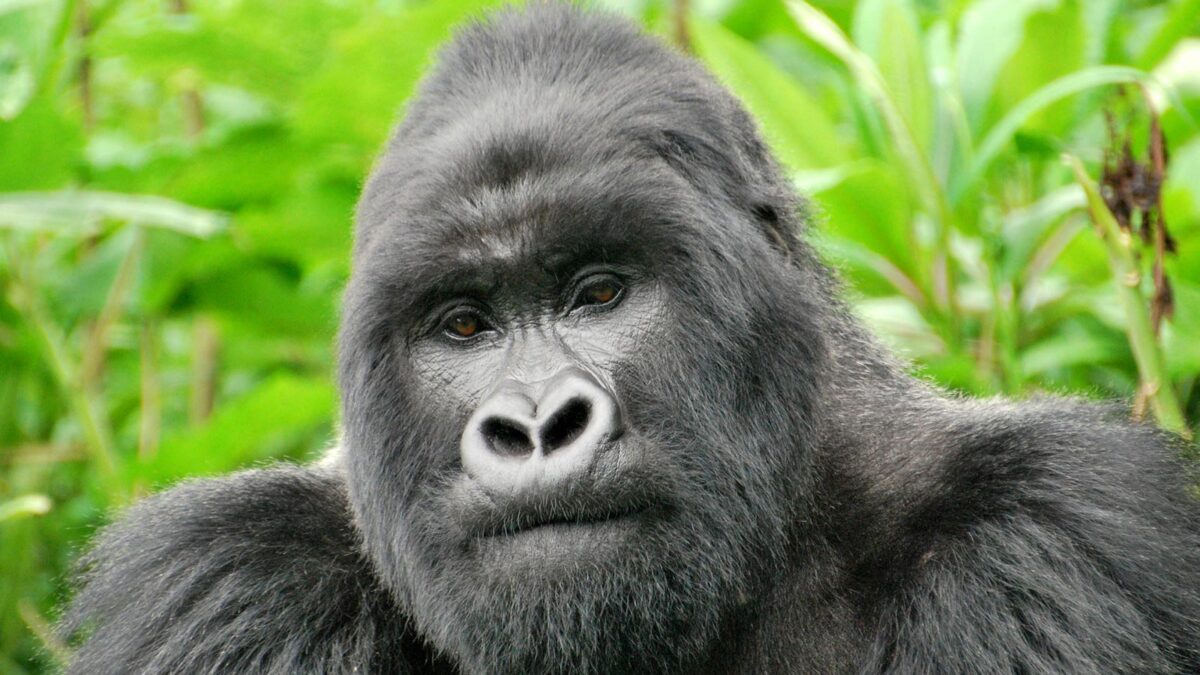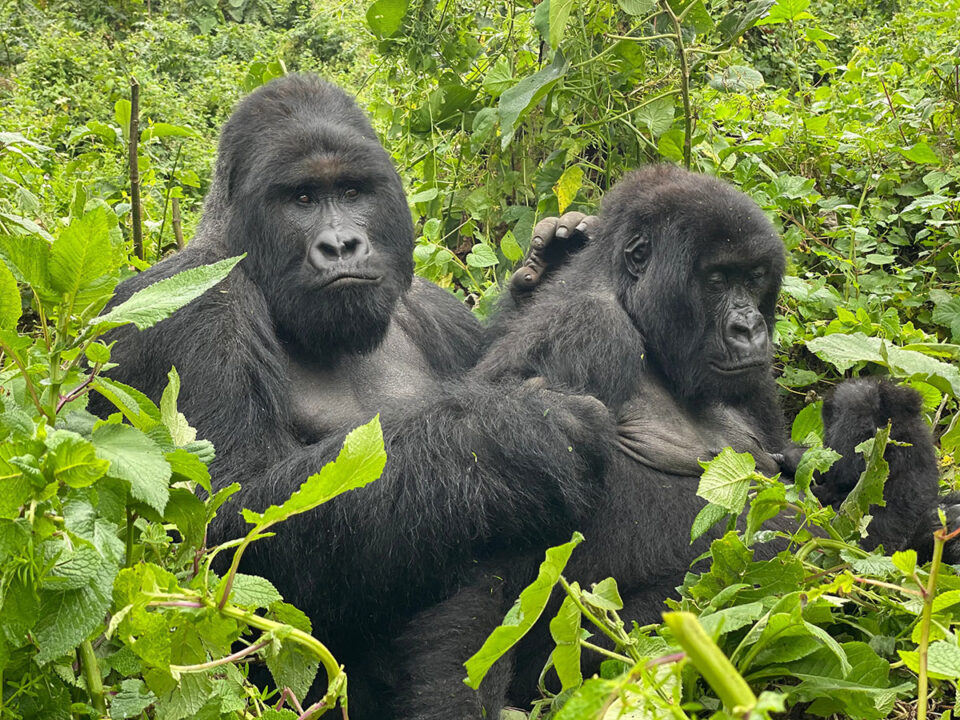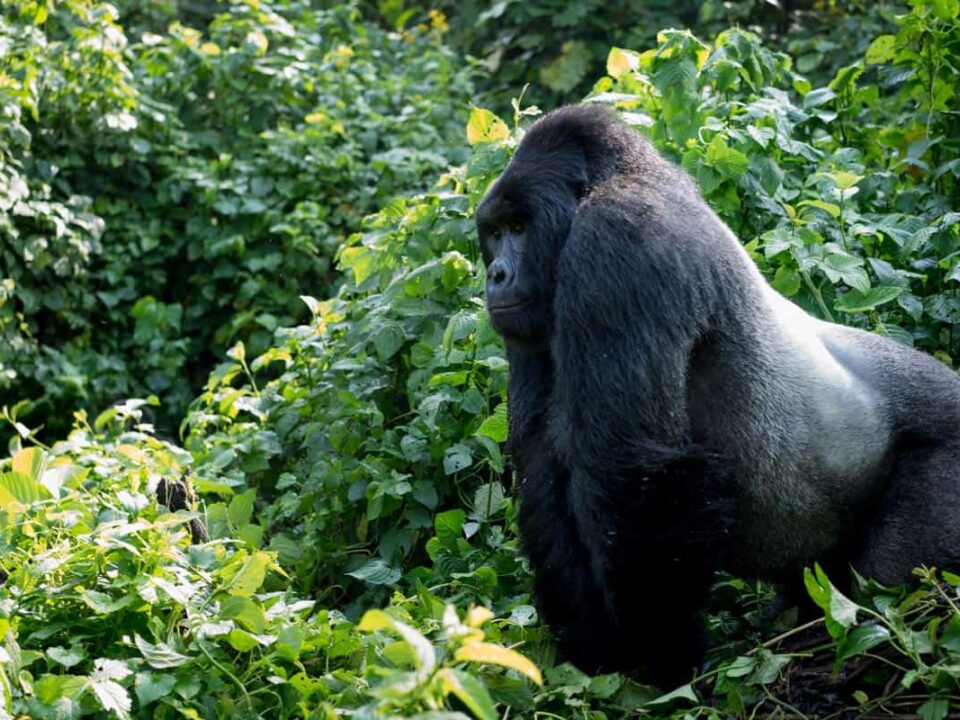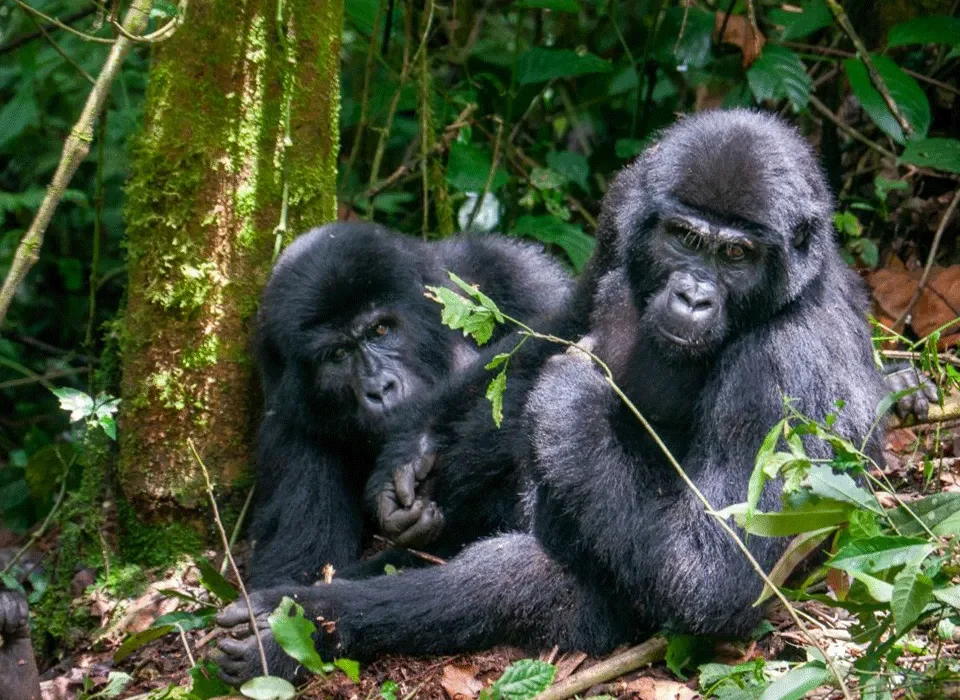Why Trek Mountain Gorillas in Rwanda?

Golden Monkey Tracking Uganda and Rwanda
August 10, 2023
Rwanda Primate Safaris
August 10, 2023Unveiling the Enigmatic Allure of Mountain Gorilla Trekking in Rwanda – A Multifaceted Perspective
The decision to embark on a mountain gorilla trekking expedition in Rwanda is no simple matter, especially in light of the recent increase in gorilla permit fees from the conventional 750 USD to the new 1500 USD. This price hike, in comparison to neighboring countries like Uganda, where permits are priced at USD800 , and the Democratic Republic of Congo, which charges 400 USD, has raised eyebrows and stirred debates regarding the cost of this extraordinary encounter, where an hour in the presence of these magnificent creatures is promised.
Delving into the Depths – Unveiling the Why Behind the Trek
Unearth the rationale underlying this extraordinary venture as we delve into the ten compelling reasons that unequivocally advocate for the pursuit of mountain gorilla tracking in Rwanda.
Unparalleled Accessibility – A Gateway from Around the Globe
Situated in the heart of Eastern Africa, Rwanda emerges as a landlocked jewel offering easy access from all corners of the world. Facilitating seamless travel, the national carrier, Rwanda Air, boasts a network that spans the United States, Europe, China, and a myriad of connections within the African continent. Unlike its counterparts, Rwanda offers an inviting doorway beckoning explorers to traverse its landscapes with unmatched ease.
A Tale of Resilience – The Legacy of Genocide
Rwanda’s history is a poignant chapter etched into the annals of human suffering and resilience. The tragic genocide of 1994-1999 claimed the lives of an estimated 800,000 Hutus, leaving scars that are still palpable today. Yet, a testament to the strength of the human spirit, Rwanda arose from these ashes to chart a remarkable trajectory. Today, its economy thrives, fueled in no small part by the healing power of tourism. A poignant visit to Rwanda offers an opportunity to delve into this history, to learn, and to pay homage to the spirit of a nation reborn.
Economy and Community Revival – A Triumph of Spirit
Spanning a mere 26,338 square kilometers, Rwanda, often dubbed the “country of a thousand hills,” boasts an economy driven by a unique blend of resilience and renewal. Amidst its challenging mountainous terrain, traditional industries like agriculture have taken a backseat to the burgeoning sectors of tourism and revenue generation. A visit to Rwanda not only treats travelers to awe-inspiring landscapes but also contributes to the ongoing revival of communities and the nation’s economic fabric.
Abundance in Diversity – Expanding Gorilla Families
Nestled within the embrace of Volcanoes National Park, Rwanda’s mountain gorilla families flourish. A favorable climate has fostered consistent growth through the birth of new members. This joyous occasion is marked by the “Kwitonda Izina” ceremony, an event of global prominence graced by dignitaries like Louis van Gaal and Adam Johnson, echoing the triumphant rhythm of life echoing through Rwanda’s forests. Notably, the Susa family, one of the park’s largest, comprises an impressive 33 mountain gorillas, testament to Rwanda’s dedication to conservation.
A Haven of Habitat – Enchanting Ecosystems
Volcanoes National Park finds its abode amidst a majestic tapestry of volcanic peaks, including Muhavura, Gahinga, Sabyinyo, Karisimbi, and Bisoke. While the highest point soars to 4,507 meters above sea level, the gorillas predominantly inhabit the bamboo zone, affording an environment ideal for exploration. The accessibility of this habitat distinguishes Rwanda’s gorilla tracking from Uganda’s Bwindi Impenetrable National Park, enhancing the overall trekking experience.
Seamless Trekking – Navigating the Lush Landscape
Gorilla tracking, while a wondrous venture, often entails unpredictable challenges. A comparative analysis among Uganda, the Democratic Republic of Congo, and Rwanda reveals the latter as a frontrunner in ease of trekking. A resounding endorsement emerges as clients consistently return after a mere two-hour journey, evidencing a streamlined experience that attests to the walk’s brevity. With minimal time and effort, you find yourself at the starting point, setting the stage for an unforgettable encounter with the mountain gorillas.
A Road Less Travelled – Scenic Journeys Await
The road from Rwanda’s capital, Kigali, to Volcanoes National Park stretches for a mere two hours, enveloped in a smooth tarmac embrace. This juxtaposition of proximity and road quality allows Rwanda to extend the allure of short yet impactful safaris. From a one-day gorilla trek to a two-day immersion, Rwanda beckons with an array of expeditions designed to captivate and astonish.
Tourism with a Conscience – Regulated Harmony
Rwanda, propelled by the Rwanda Development Board, has meticulously orchestrated its tourism landscape, eschewing the perils of overbooking. A steadfast commitment to harmony is embodied in a stringent rule of permitting only eight individuals per day, ensuring an intimate and enriching encounter that celebrates the essence of conservation.
Safety’s Embrace – A Secure Sojourn
Rwanda distinguishes itself as a haven of tranquility within the East African landscape, boasting a remarkably low rate of criminal incidents affecting tourists. A visit to Rwanda promises the privilege of exploration unburdened by concerns, allowing you to revel in the majesty of the land and its inhabitants.
A Noble Cause – Championing Conservation
Each gorilla permit secured in Rwanda serves as a direct endorsement of the Dian Fossey Gorilla Fund Project. By embarking on this remarkable journey, you actively participate in the preservation of the remaining mountain gorilla population within their natural habitat, a testament to your commitment to environmental stewardship.
The Sum of Wonders Awaits – Embark on a Journey with Trek Africa Expeditions
As you contemplate the prospect of a mountain gorilla trekking escapade, bear in mind that the reasons are manifold, etching a resounding endorsement for Rwanda as the ultimate destination. A realm of awe-inspiring landscapes, poignant history, and extraordinary encounters beckons, paving the way for an indelible journey of discovery. With Trek Africa tours as your guide, the path to this enchanting realm unfolds seamlessly. Our expertise transforms mere travel into a transformative odyssey, inviting you to become part of Rwanda’s storied tapestry and champion the cause of conservation. Contact us today, and embark on a journey that promises not just adventure, but a profound connection with the heart of Rwanda’s wilderness.




